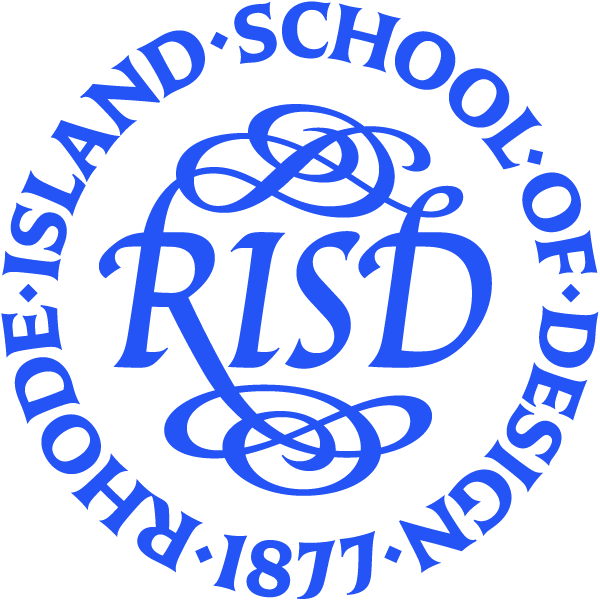Department of Industrial Design. Universal Kitchen records
-
No requestable containers
Scope and Contents
Photographs, negatives, videos (VHS and 8mm), 2 audio cassettes, slides, drawings, reports, and research records document the Universal Kitchen project, 1990-2002. The bulk of the collection contains extensive visual documentation including approximately 5800 slides, 59 videos, transparencies and negatives, and multiple portfolios of drawings and large photographs. Documents include Max, Mid, and Mini kitchen models, time-motion studies(behavioral maps), confidential reports from corporations, and so on.
The video and audio cassettes have been digitized and will be posted on the Fleet Library at RISD's Digital Commons website. The slides, photographs, drawings, and research records are published and available to researchers.
Dates
- Creation: 1990-2002
Creator
- Rhode Island School of Design. Department of Industrial Design (creator, Organization)
Language of Materials
English
Conditions Governing Access
The use of certain documents and collections may be restricted. Please consult the Archives staff for further details.
Conditions Governing Use
Permission to publish, reproduce, or quote from archival materials must be obtained in writing from the Archives. The researcher assumes full responsibility for use of material and for conformity to all applicable laws, including copyright.
Historical note
In 1993, an interdisciplinary team of over 100 students in the Industrial Design, Architecture, and Interior Architecture embarked on RISD’s most ambitious project to-date: to design a more accessible, efficient, and user-friendly kitchen from the ground-up. The campaign began with a simple notion: that routine kitchen tasks force people to bend, stoop, reach and lift—to accommodate design flaws in uncomfortable ways.
The Universal Kitchen project was led by design directors Jane Langmuir (‘66 IA), Marc Harrison (ID) and Peter Wooding. It was the brainchild of Langmuir, who alongside Harrison saw the kitchen as an icon of poor design; one in which the able-bodied can remarkably adapt. Harrison believed that it was the role of design to accommodate the user, rather than the user having to adapt to rigid, unforgiving design.
The three directors alternated teaching courses on universal kitchen design each semester, where they challenged students to unlearn what they were patterned to know about kitchens. Their approach included a step-by-step analysis of meal making and mapping techniques, so that design decisions were based on numerical information, not just intuitive feeling.
Students conducted a number of motion tests and determined that over 400 movements are taken to make the average dinner. From there, the designers considered the essential elements of water, fire, surface, and storage. Through ergonomic studies, they developed the parameters of a key concept they call the “comfort zone" - the area within easy reach for each individual. Among the many innovative ideas produced over the five year research period: a utility mouse, continuous wet surfaces, pop-up dishwashers, grey water irrigation systems, counter top waste channels, toe-kick suction, electronic consumption tracking, misting bays, steaming bays, and retractable burners.
The team designed three tiers to their kitchens; MIN, MID, and MAX. MIN was a small kitchen for studio apartments, dorm rooms, hotel suites, independent living centers, etc; and MAX, a gourmet cooking kitchen and dining area able to accommodate large families or other groups.
The project gathered financial support from a number of appliance corporations, including Frigidaire and Maytag, who provided students with funds and prototyping materials. Two of RISD’s Universal Kitchens debuted at a 1998 exhibition at the Cooper Hewitt Smithsonian Design Museum in New York City, and the project was also featured on The Oprah Winfrey Show. The project was dedicated to Harrison, who died before its premiere in 1998 after a battle with ALS. RISD sold the exclusive worldwide rights of the Universal Kitchen to the Maytag Corporation, who sent prototypes to market but ultimately has never implemented the designs.
Extent
26 linear feet
Abstract
From 1990-2002, over 100 interdisciplinary RISD undergraduates, led by the Department of Industrial Design, worked to redesign the residential kitchen from the ground up, to meet the needs of a full range of users. The records include photographs, negatives, videos (VHS and 8mm), slides, drawings, reports, and files.
Arrangement
- I. Audio/Video recordings, 1994-1999
- II. Slides, Photographs, and Negatives, 1992-2002
- III. Faxes, 1997 May-1998 November
- IV. Research records,1990-1998
- V. Large Format Diagrams, 1994-1998
Immediate Source of Acquisition
Transferred to the Archives by Michael Lye, Department of Industrial Design.
Existence and Location of Copies
The audio/video recordings were digitized in 2021 with the assistance of a Libraries of Rhode Island (LORI) grant from the RI Office of Library and Information Services using funds from the Institute of Museum and Library Services. See the Fleet Library at RISD's Digital Commons website.
Subject
- Langmuir, Jane (creator, Person)
- Wooding, Peter (creator, Person)
- Stumpf, Bill (creator, Person)
- Caplan, Ralph (creator, Person)
- Rhode Island School of Design. Department of Industrial Design (creator, Organization)
- Title
- Guide to the Department of Industrial Design. Universal Kitchen records1990-2002
- Author
- Finding aid prepared by Margaret Lindon and Douglas Doe.
- Date
- 2022 Jan 19
- Description rules
- Finding Aid Based On Describing Archives: A Content Standard (Dacs)
- Language of description
- English
- Script of description
- Latin
- Language of description note
- English
Revision Statements
- 2023 Mar 17: Series II-V added to finding aid by Ziyun Ma.
Repository Details
Part of the Rhode Island School of Design Archives Repository
